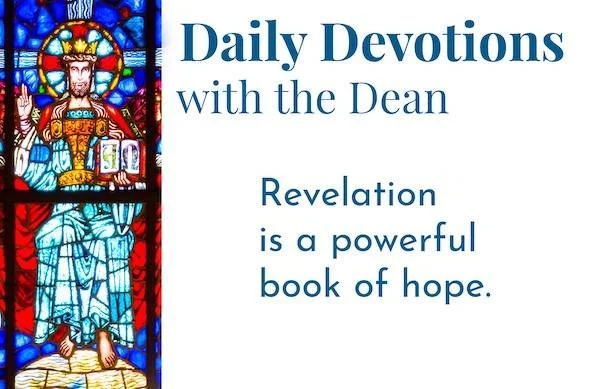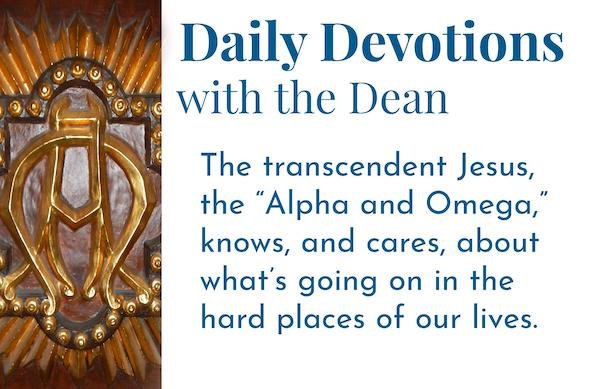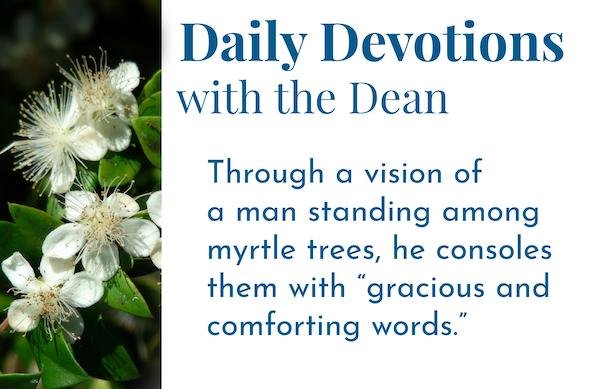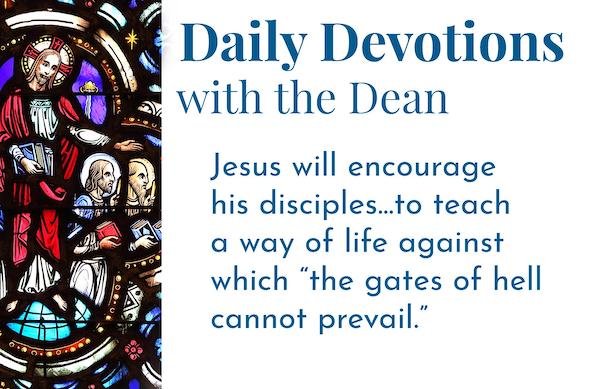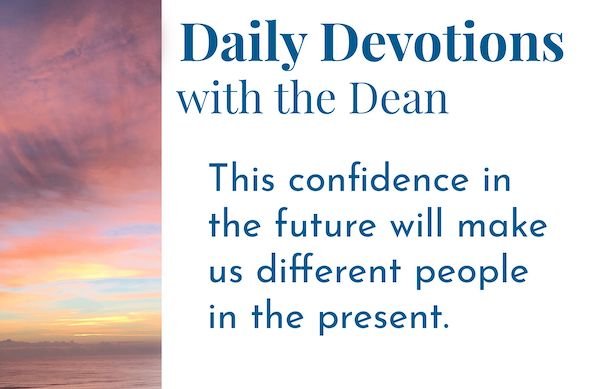Friday • 10/31/2025 •
Friday of the Twentieth Week After Pentecost (Proper 25)
This morning’s Scriptures are: Psalm 40; Psalm 54; Nehemiah 2:1–20; Revelation 6:12–7:4; Matthew 13:24–30
And inserting the normal readings for Monday (which happens to be All Saints Day): Psalm 56; Psalm 57; Nehemiah 6:1–19; Revelation 10:1–11; Matthew 13:36–43
This morning’s Canticles are: following the OT reading, Canticle 10 (“The Second Song of Isaiah,” Isaiah 55:6–11; BCP, p. 86); following the Epistle reading, Canticle 18 (“A Song to the Lamb,” Revelation 4:11; 5:9–10, 13, BCP, p. 93)
Welcome to Daily Office Devotions, where every Monday through Friday we bring to our lives that day’s Scripture readings, as given in the Book of Common Prayer. I’m Reggie Kidd, and I’m grateful to be with you this Friday in the Season After Pentecost. We are in Proper 25 of Year 1 of the Daily Office Lectionary.
Nehemiah represents a second wave of efforts in the post-exilic restoration of Judah and Jerusalem. Ezra before him had concentrated on the temple. Nehemiah will be known for rebuilding the city wall. In the year 445 B.C., some 93 years after Persia’s King Cyrus had decreed the return of Jews to Jerusalem, Nehemiah is still in Persia, ministering in the court of Persia’s Artaxerxes II. He does so in the spirit of Jeremiah’s earlier exhortation in advance of exile: “[S]eek the welfare of the city where I have sent you into exile, and pray to the Lord on its behalf, for in its welfare you will find your welfare” (Jeremiah 29:7).
Two notes about what is going on in Nehemiah’s heart are intriguing.
Nehemiah’s “sadness of the heart.” A friend once told me that if I haven’t learned the rules of poker (which I never have), I would be wise never to do so. “You’re just too easy to read. In poker, you’d lose your shirt.” Maybe that’s why I love Nehemiah. He’s “seeking the welfare of the city” of his exile, faithfully and honorably serving as wine-bearer for the Persian king, in fact. But his affections lie in the country his people had been cast out of a century and a half earlier. Artaxerxes reads him like a book: “Why is your face sad, since you are not sick? This can only be sadness of the heart” (Nehemiah 2:2).
Image: The Eran Laor Cartographic Collection, National Library of Israel, CC0, via Wikimedia Commons
Nehemiah answers honestly, and perhaps courageously: “Why should my face not be sad, when the city, the place of my ancestors’ graves, lies waste, and its gates have been destroyed by fire?” (Nehemiah 2:3). The exchange leads to Artaxerxes sending Nehemiah to Jerusalem, not only with his blessing, but with his official endorsement and support for Nehemiah’s efforts “to seek the welfare of the people of Israel” (Nehemiah 2:10).
Here’s the payoff for a dual commitment to love God and love neighbor. Nehemiah’s heart had been shaped by affection for the Lord, after the example of people like Daniel, who, we are told, prayed towards Jerusalem three times a day (Daniel 6:10). And, Nehemiah’s heart had been shaped by the fact that, in obedience to the God of the whole earth, he had been “seeking the welfare of the city” of his exile, where God’s providence had landed him.
Nehemiah’s is a case in which something good happens when what’s in the heart “leaks” out. Sometimes it’s not a bad thing when somebody can read you like a book. Sometimes emotional transparency is redemptive.
Nehemiah’s secret plans of the heart. At the same time, there’s much to admire in Nehemiah’s caginess in holding close to the vest his plans for rebuilding Jerusalem until he has studied closely the situation on the ground. Unlike me, Nehemiah can, it turns out, hold a poker face!
Three days after his arrival in Jerusalem, he says, “… I got up during the night, I and a few men with me; I told no one what my God had put into my heart to do for Jerusalem. The only animal I took was the animal I rode” (Nehemiah 2:12). Secretly, he circuits the city by night to assess the extent of the damage to the city wall, how vulnerable the city is, and how great the task of rebuilding will be. Then, and only then, he tells the Jewish leaders and people his plans: “‘You see the trouble we are in, how Jerusalem lies in ruins with its gates burned. Come, let us rebuild the wall of Jerusalem, so that we may no longer suffer disgrace.’ I told them that the hand of my God had been gracious upon me, and also the words that the king had spoken to me. Then they said, ‘Let us start building!’ So they committed themselves to the common good” (Nehemiah 2:17–18).
It’s as though Nehemiah had heard ahead of time Jesus’s exhortation to count your resources before you commit yourself to battle (Luke 14:31). With the confidence of God’s call, the Persian king’s imprimatur, and the people’s commitment to the work, he is ready to stand up to resistance from the surrounding non-Jewish overlords who have a vested interest in keeping Jerusalem in rubble. To them, he is now ready to assert: “The God of heaven is the one who will give us success, and we his servants are going to start building; but you have no share or claim or historic right in Jerusalem” (Nehemiah 2:19).
May God grant us hearts like Nehemiah’s, at once pliable and sagacious.
Be blessed this day,
Reggie Kidd+
Nehemiah's night tour along the walls of Jerusalem as described in the book of Nehemiah chapter two. Edited by Alon Adir, usually following the hypotheses presented in the World of the Bible encyclopedia - Vol. Daniel, Ezra and Nehemiah. The site scores and the tour route were illustrated on a topographic map of Jerusalem donated by the Eran Collection




